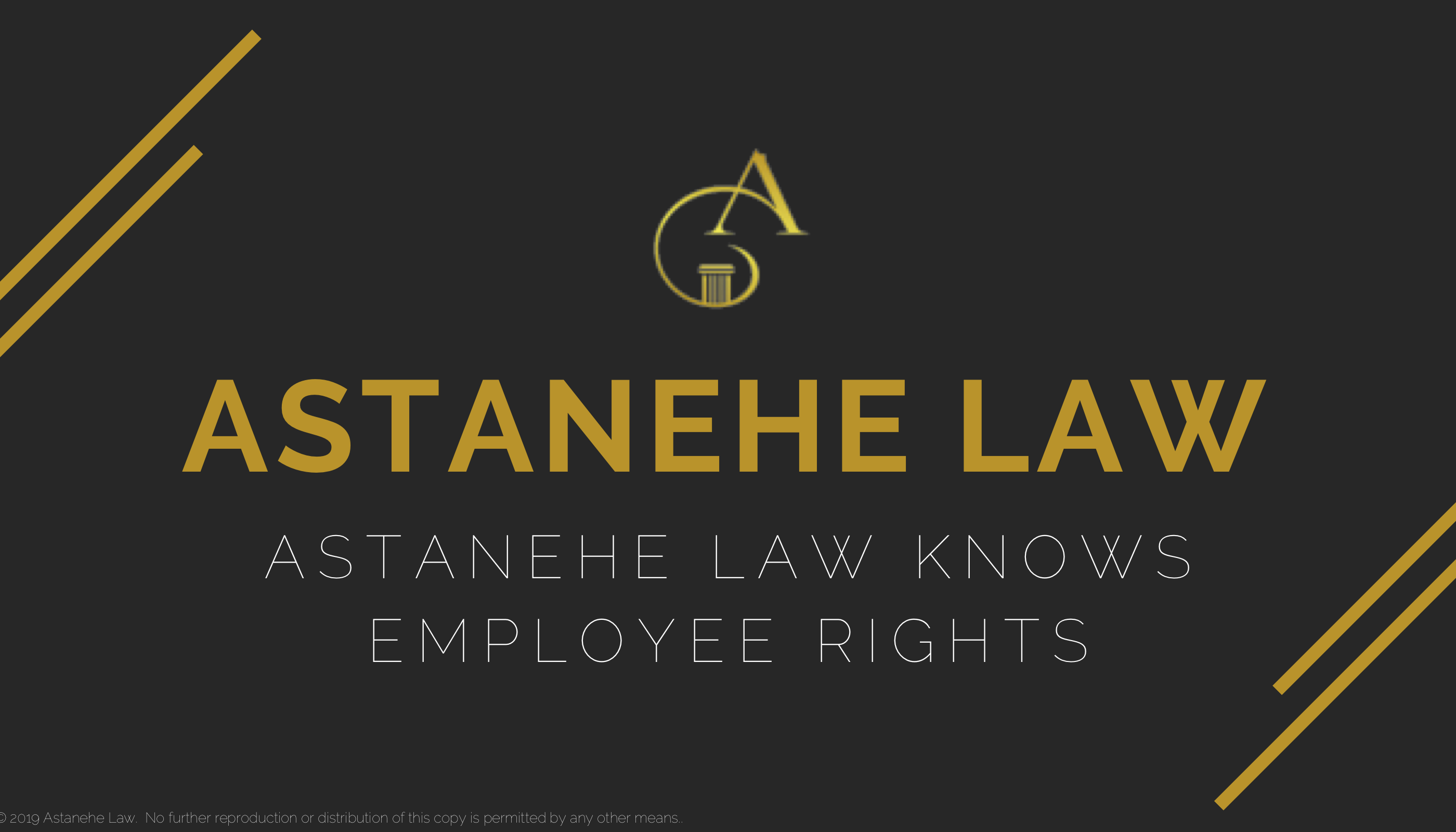Wrongful termination, also widely referred to as unlawful termination or wrongful discharge relates to unlawful employee dismissal. Accordingly, an employer commits a wrongful termination upon firing an employee without a just reason, often due to discrimination, retaliation, breach of the employment contract, or a violation of public policy.
Wrongful Termination Categories
Racial Discrimination
Employers cannot treat applicants or employees unfavorably because they are of a certain race or due to certain personal characteristics associated with race.
LGBTQ Discrimination
Federal, state, and several municipal laws protects lesbian, gay, bisexual, transgender, and queer applicants and employees from discriminatory treatment.
Disability Discrimination
Employees covered under disability laws are entitled to reasonable workplace accommodations. Employers cannot discharge for disability disclosure or accommodation requests, or refuse to grant disability-related time off requests.
Breach of Employment Contract
Certain employment contracts contain provisions relating to disciplinary and dismissal procedures. Employers who flout these provisions are liable for wrongful termination claims based on the breach.
Gender Discrimination
Employees terminated because of their gender have suffered unlawful gender discrimination. Sexual harassment is a form of gender discrimination.
Retaliation
An employer may not fire employees for exercising rights, such as participating in a government investigation against the employer or filing a complaint with HR. This conduct constitutes a retaliatory wrongful termination.
Pregnancy Discrimination
Employees fired due to pregnancy or pre-pregnancy plans may have been wrongfully terminated. Employers cannot discriminate against employees for being pregnant.
Religious Discrimination
Wrongful terminations based on religious discrimination involve discharging employees because of their religious beliefs. Employees married to or associated with an individual of a particular religion are also protected.
Whistleblower Retaliation
A whistleblower is an employee who reports illegal conduct. Whistleblowers are entitled to specialized protections from discharge.
Marital Status Discrimination
Employers cannot discriminate due to an employee’s marital status. Firing an employee on account of their marital status constitutes a wrongful termination.
Military or Veteran Discrimination
USERRA and California law protect an employee’s right to take leave for military service. All employers must honor the leave. An employer who discharges an employee for military leave is liable for damages and attorney fees.
Age Discrimination
Federal and state law prohibit age discrimination in any aspect of employment. Employers cannot treat employees less favorably because of their age.
Constructive Termination
Constructive terminations occur when an employee is forced to quit because the employer has made work conditions unbearable via discrimination, harassment, mistreatment, baseless demotions or pay decreases, or due to a hostile work environment.
Ethnicity Discrimination
Ethnicity refers to ethnic traits, backgrounds, allegiances or associations of a particular group of people that share such characteristics in common. Employees dismissed due to ethnicity have a claim for wrongful termination.
Genetic Information Discrimination
Under GINA, employers cannot acquire genetic information. An employer who unlawfully obtains and discharges an employee on the basis of genetic information has committed a wrongful termination.
National Origin Discrimination
Employers cannot discriminate due to national origin, which includes nationality, ancestry, culture, and ethnic-specific linguistic characteristics.
Familial Discrimination
Employees have the right to attend to family responsibilities which involve caring for family members. Employers may not terminate an employee for their family responsibilities.
Wrongful Termination Damages
Damages for wrongfully terminated employees commonly include awards of back pay, front pay, medical costs, and fringe benefits or employment perks. More rarely, damages can also include reinstatement and the award of punitive damages.
Back pay is the difference between the compensation an employee would have earned in a job the employee was denied and the amount that the employee earned, or could have earned in the same area. Back play reflects total earnings and includes possible pay raises and promotions.
Front pay reflects the future earnings expectancy that has been lost or diminished. Courts generally award such damages when reinstatement to the former position is not feasible or advisable. Fadhl v. City & Cty. of San Francisco, 741 F. 2d 1163 (9th Cir. 1984).
Fringe benefits or employment perks are non-wage or salary compensation such as stock options, meal and travel allowances, and savings or retirement plan contributions. To collect lost or denied fringe benefits, an employee must establish: (1) These benefits would have been received and are not speculative; and, (2) Their loss flows naturally from the wrongful termination.
Reinstatement occurs where the settlement or judgment calls for employee restoration to the former position after a wrongful discharge. If accepted, the employer may still be required to fulfill a back pay award. However, front pay damages are not typically concurrently awarded with reinstatement.
Courts award punitive damages when the wrongful termination occurs with an intentional wrong, insult, abuse, or gross negligence to constitute an independent tort.
Employees can also recover out-of-pocket costs associated with the wrongful termination.
No Upfront Costs for Wrongful Termination Lawsuit
You will not owe Astanehe Law a penny until after you obtain a successful settlement or judgment. Astanehe Law offers contingency representation which means there is no upfront cost in securing legal representation.
Astanehe Law Knows Wrongful Terminations
Michael M. Astanehe possesses a zeal for helping employees bring claims against their employers. Mr. Astanehe is an aggressive litigator with several years of civil litigation experience. He is willing to take your case to trial, if necessary. This ferocity ensures that Astanehe Law will obtain the highest recovery possible for each client.
Litigation is stressful. To that end, Mr. Astanehe provides each client with comprehensive legal service so that they remain fully-informed and comfortable throughout the process. Astanehe Law strives to make litigation as stress-free as possible.
With Astanehe Law on your side, you are poised to obtain the maximum recovery possible. Call today for your free consultation!

